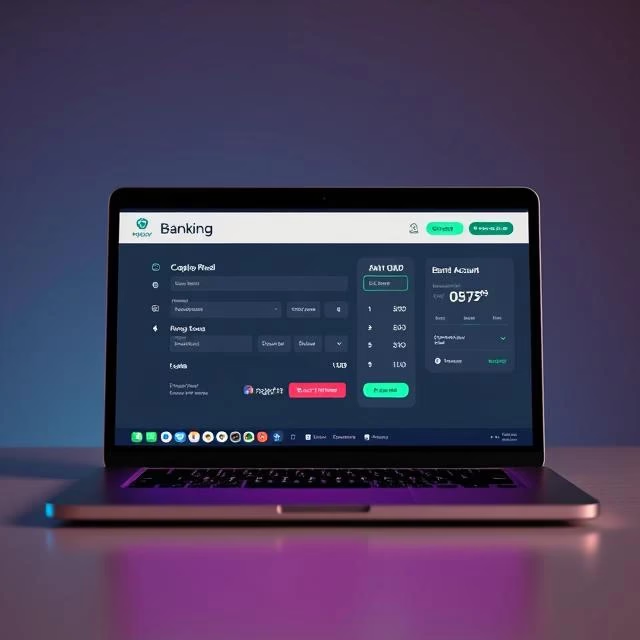Hey, are you thinking about opening a digital bank account but feeling a little anxious about it? You’re not alone. With more people doing their everyday banking online, the debate over benefits versus risks of digital banking often takes center stage. Let’s dive into what makes digital bank accounts so appealing, their potential downsides, and how you can make the best decision for you.
Why Digital Banking Is Gaining Popularity

Digital banking has been around for a while, but its popularity skyrocketed particularly during the pandemic. People saw how easy it was to manage finances without stepping out of their homes. But why are so many people making the switch?
Convenience tops the list, allowing users to conduct transactions anytime, anywhere. The better interest rates offered by digital banks are another draw. These banks often have lower overhead costs, allowing them to pass on the savings. Accessibility is also improved, providing banking services to those in remote areas without physical branches. These features create a packaged appeal that’s hard to resist.
Understanding the Benefits and Risks
To get a clearer picture, it helps to weigh the advantages and disadvantages side by side. Here’s a quick breakdown in table form:
| Aspect | Benefits | Risks |
|---|---|---|
| Convenience | 24/7 access from anywhere | Technical issues or downtime |
| Cost | Lower fees and higher interest rates | Hidden fees may apply |
| Security | Use of advanced security measures like OTP | Cybersecurity threats exist |
| Customer Support | Usually responsive online support | Lack of in-person assistance |
From the table above, it’s evident that while online banks provide unbeatable convenience and often better financial terms, they also come with risks like service downtime and potential security vulnerabilities. Balancing them is key.
Security Concerns: Are They Overblown?
Security is a significant concern when it comes to digital banking. The thought of not having a physical place to go if something goes wrong can be unsettling. However, digital banks invest heavily in state-of-the-art security measures like encryption and multi-factor authentication to safeguard your assets.
“The security measures taken by digital banks are often more advanced than those of traditional banks,” says cyber-security expert John Smith.
That said, no system is completely foolproof. It’s crucial to keep your devices secure and be cautious about where you enter sensitive information.
The Role of Customer Support in Digital Banking
Ever tried solving a problem over the phone and wished you were speaking to someone in person? Digital banks often excel in online customer support, offering chatbots and customer service reps accessible via apps and websites. Yet, for those accustomed to traditional face-to-face banking, this can feel like a hurdle. While the digital support can be fast and efficient, it may lack the emotional comfort of speaking with a human directly.
Cost-Benefit Analysis of Digital Bank Accounts
Let’s talk money. Who doesn’t love saving some extra cash? Digital banks typically have lower operational costs, leading to lower fees and sometimes even higher interest rates. This means more money stays in your pocket. However, sometimes hidden fees can cloud this otherwise sunny forecast. It’s crucial to read the fine print when signing up for any account.
Types of Digital Bank Accounts to Consider
1- Checking Accounts with free bill pay and easy transfers.
2- Savings Accounts that offer higher interest rates.
3- Certificates of Deposit (CDs) with competitive interest rates.
4- Specialty Accounts like IRAs or student accounts.
Each type serves different financial needs, offering flexible options depending on your goals.
Comparing Digital Bank Offers

Before choosing a digital bank, compare various offers. Consider interest rates, fees, customer reviews, and the pros and cons outlined in their terms and conditions. Online comparison tools can simplify this task, helping you find the perfect digital bank account to match your needs.
FAQ – Common Doubts
Is my money safe in a digital bank?
Yes, digital banks use high-level security measures to protect your funds and personal information.
Can I deposit cash into a digital bank account?
Most digital banks do not accept cash deposits directly, but you can often deposit cash via partner ATMs or by transferring from a traditional bank.
Are digital banks regulated?
Yes, just like traditional banks, digital banks are subject to regulatory oversight by financial authorities.
How are fees lower at digital banks?
Digital banks have reduced operational costs from not maintaining physical branches, allowing them to offer lower fees.
What if I lose internet access?
Many digital banks offer features that allow basic transactions via phone or SMS if you temporarily lose internet access.
How do I choose between a digital and a traditional bank?
Consider your banking needs, such as customer support preferences and transaction habits, to decide which aligns best with your lifestyle.
Conclusion
In summary, digital banks offer a flexible, often more economical alternative to traditional banking. They provide excellent opportunities for saving money and gaining easy access to financial services. However, like anything significant, it’s essential to weigh these advantages against potential risks, especially concerning security and customer support. Armed with the right information, digital banking can be a great addition to your financial toolkit.





